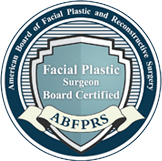Rhinoplasty, commonly called a “nose job,” is one of the most popular cosmetic surgeries worldwide. It can refine the shape of the nose, improve breathing, and enhance facial harmony. However, for individuals who use their voice professionally, such as singers, actors, or public speakers, a common concern arises: can rhinoplasty change your voice?
The Anatomy of the Voice
To comprehend whether rhinoplasty can impact your voice, it’s essential to understand how the voice is produced. The vocal cords primarily generate the sound of your voice in the larynx (voice box) as air passes through them. However, your voice is also shaped by the resonating chambers in your body, particularly the throat, mouth, and nasal passages. These areas amplify and modify the sound produced by the vocal cords, giving your voice its unique tone and quality.
The nasal cavity plays a crucial role in this process. It affects the resonance and timbre of your voice, particularly influencing nasal sounds. Any alteration to the nasal structure can potentially impact how sound resonates, leading to subtle changes in voice quality.
The Potential Impact of Rhinoplasty on Voice
While rhinoplasty is primarily concerned with reshaping the nose, it can involve changes to the internal structures, such as the septum or turbinates, which are vital for nasal airflow. These alterations can, in turn, affect the nasal cavity’s role in voice production.
For most people, any change in voice following rhinoplasty is typically minimal and often undetectable to the untrained ear. However, professional voice users may notice subtle differences in their vocal quality. These changes could include:
- Altered Nasal Resonance: Changes to the internal nasal structure can reduce or increase the amount of nasal resonance, affecting how “nasal” the voice sounds.
- Improved Breathing: In cases where rhinoplasty corrects a deviated septum or other structural issues that impair breathing, patients might find they have better breath control, potentially enhancing voice production.
- Subtle Changes in Pitch or Tone: Although rare, some patients report slight variations in pitch or tone due to altered resonance. This is more common in patients with extensive nasal surgery.
Who Should Be Concerned?
If you are a professional singer or voice actor, it’s natural to be concerned about how rhinoplasty affects your voice. However, it’s important to note that most people, including those who use their voices professionally, do not experience significant changes.
A detailed discussion about your concerns about voice will be conducted during your consultation with Dr. Matthew White. Dr. White’s facial and nasal anatomy expertise allows him to tailor the procedure to minimize any impact on your voice while achieving your aesthetic goals. Additionally, he may collaborate with an ear, nose, and throat (ENT) specialist to assess and plan the surgery, ensuring your voice remains as unchanged as possible.
Post-Surgery Voice Care
After rhinoplasty, following post-operative care instructions is important to ensure a smooth recovery and minimal impact on your voice. Keeping your nasal passages clear, staying hydrated, and avoiding strain on your voice during the initial healing period are crucial steps.
While rhinoplasty can technically affect your voice, especially for those who rely on their voice professionally, the changes are usually minimal and can be managed with proper surgical planning. Dr. Matthew White’s experience as a facial plastic surgeon in New York ensures that both your aesthetic and vocal concerns are addressed, helping you achieve a harmonious balance between form and function. Contact us today to schedule a rhinoplasty consultation!











